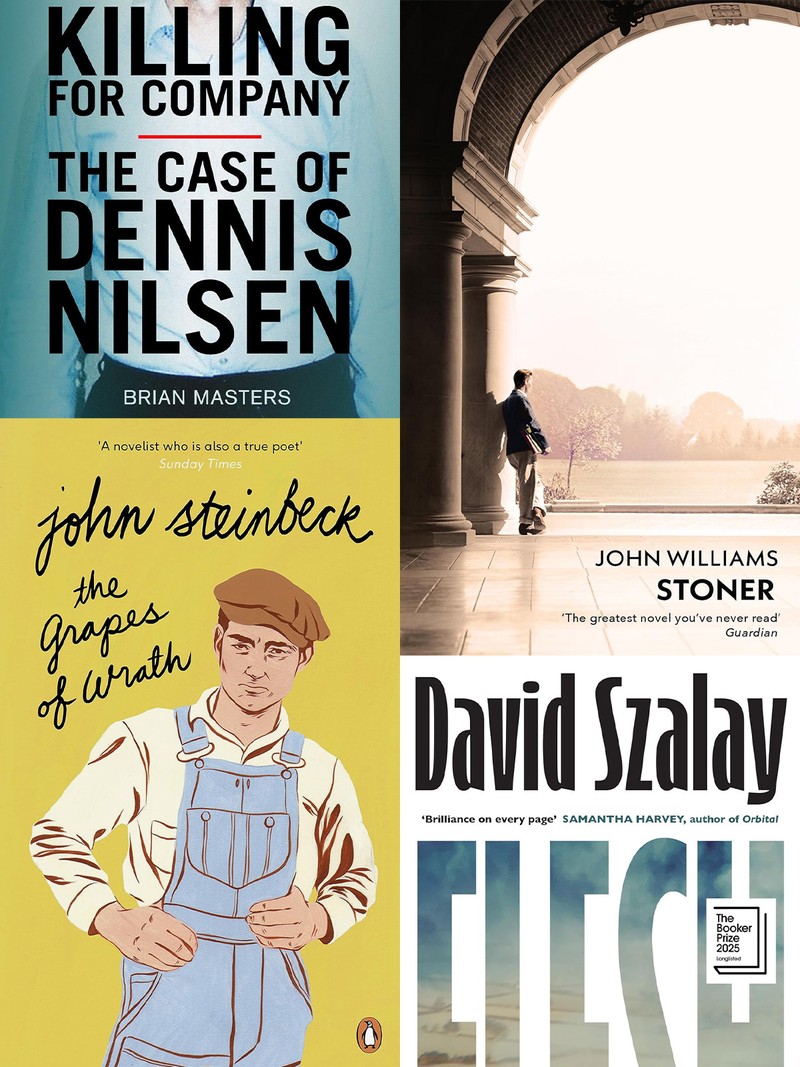
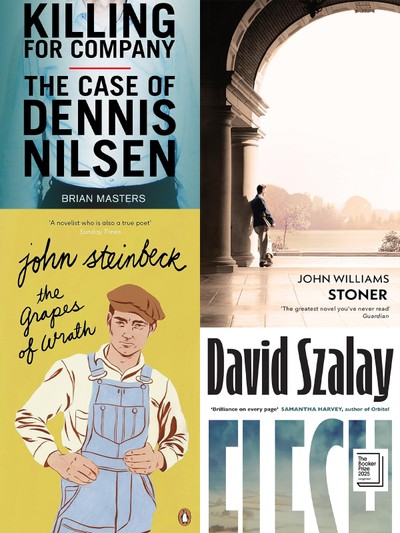
24 Books Every Man Should Read
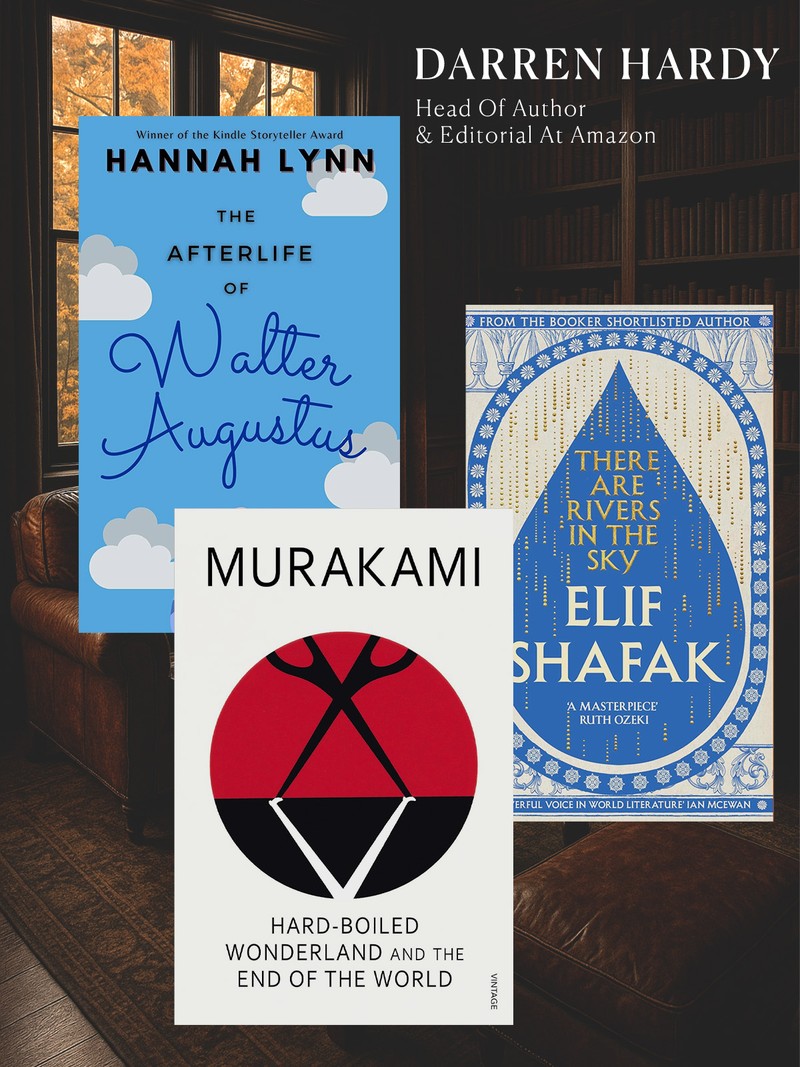
Hard Boiled Wonderland And The End Of The World | Haruki Murakami
Murakami is a master storyteller across both fiction and non-fiction but it is his novels that have arguably attracted the most plaudits. They range from stories of contemporary Japan to surreal fantasies that take the reader on bizarre but compelling rollercoaster journeys. If you’re looking for the latter, this is a great book to pick up. Two parallel narratives tell the story of a descent into a surreal Tokyo underworld featuring enigmatic characters and strange worlds. I envy the reader discovering this book for the first time – it’s Murakami at his best.
The Afterlife Of Walter Augustus | Hannah Lynn
I’ve had the pleasure of being a judge for the Kindle Storyteller contest for several years now. All the shortlisted titles are worth reading if you’re looking to immerse yourself in great storytelling. Hannah Lynn’s book won the contest back in 2018 and I’m still thinking about it in 2025. It’s an intriguing story of a man who has died and is waiting to be forgotten so he can move on in the afterlife. This is finally about to happen until someone discovers a dusty volume of poems Walter once published. From this fascinating premise, Hannah’s novel takes us on an original and captivating journey.
There Are Rivers In The Sky | Elif Shafak
Elif Shafak brings to life an incredible range of characters in her books. This is her most recent and weaves together different narratives from across the ages, from ancient Mesopotamia to 21st century London – all connected by a single drop of water. Reading Elif Shafak is such a pleasure and I’m always torn between wanting to find out what happens next while also wanting to linger over every page.
Mating | Norman Rush
Think of this as the missing link between Rachel Kushner and Graham Greene. Every five years or so, fashionable young literary people rediscover this blazingly believable fable about a messianic aid worker who tries to create a feminist utopia in rural Botswana. But they’re right: it’s a masterpiece, not to mention a rare debut from a novelist who was well into his sixth decade when it first appeared.
How To End A Story: Collected Diaries | Helen Garner
No book is more dip-into-able, richer with life, more strafed by startling observations. Garner is best known as a novelist (her debut, Monkey Grip, is a true Australian classic), secondarily as a superb true crime writer whose grasp on the nettles of moral complexity is almost freakishly unflinching. But in her diaries, you get a smorgasbord of her powers: sharp perceptions, extraordinary confessions, turbulent emotional trajectories and throwaway lines that a lesser writer could get a career out of.
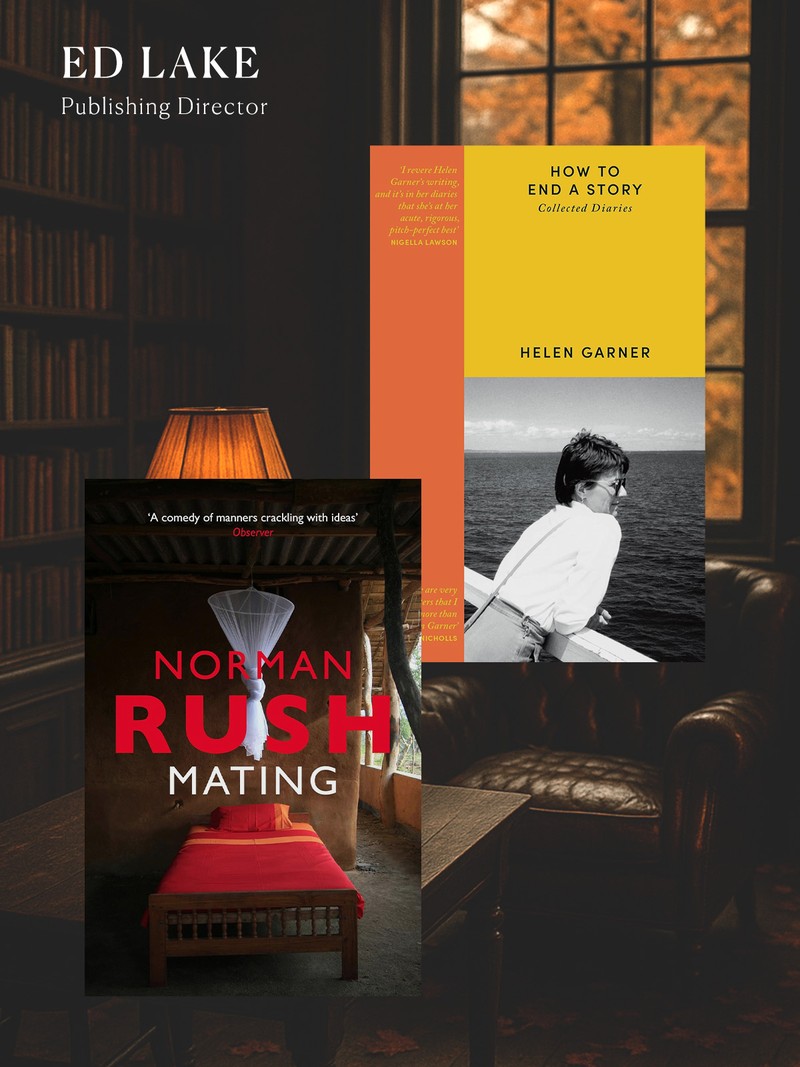
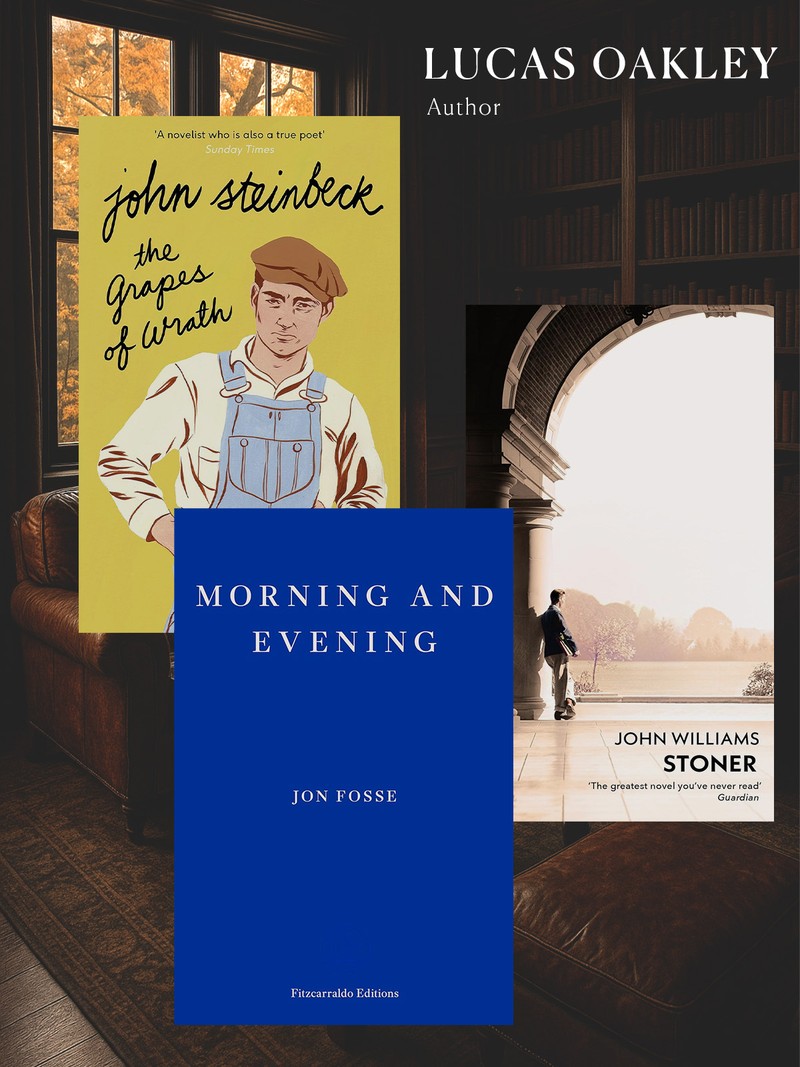
Stoner | John Williams
A thoughtful novel about one man’s life, peeling back the surface on the significance and insignificance of it. There isn't a lot of plot going on in Williams' short and affecting novel, but there’s a lot of heart. I’d recommend this to any man who feels like they need to find a sense of purpose in their life.
Morning And Evening | Jon Fosse
This book is ostensibly about one day in the life of a fisherman named Johannes, but it’s also about his entire life. And death. The recent Fitzcarraldo edition, translated by Damion Searl, perfectly captures Fosse’s hypnotic and repetitive writing style. It reads like a prayer that gongs in your ears, and that prayer-like reading experience relates thematically to the novel’s approach to death and the afterlife. It will floor you.
The Grapes Of Wrath | John Steinbeck
I’ll finish off my ‘great books by men called John’ theme with this classic from John Steinbeck. There’s a reason people hail it as one of the great American novels. It’s beautiful, brutal and will take you on a journey through the Dust Bowl of America that you’ll never quite be able to shake. Just stellar writing from top to bottom.
Visitors | Anita Brookner
No writer is better at examining the golden years than Anita Brookner. Visitors is perhaps my favourite of her novels but her oeuvre is full of mercilessly honest depictions of women in their dotage, of the small indignities of minor lives. Brookner's body of work is extraordinary and truly for grown-ups.
The Magic Mountain | Thomas Mann
This is one of those fat canonical novels that contains so much you can hardly believe it – a reflection on politics, aesthetics, philosophy, love – and is strangely compelling despite not having very much in the way of plot. The Magic Mountain challenged my ideas about how fiction can work and is a book that strikes me as a secret handshake of sorts; every Mann reader I’ve encountered in the world seems to share my passion for this one.
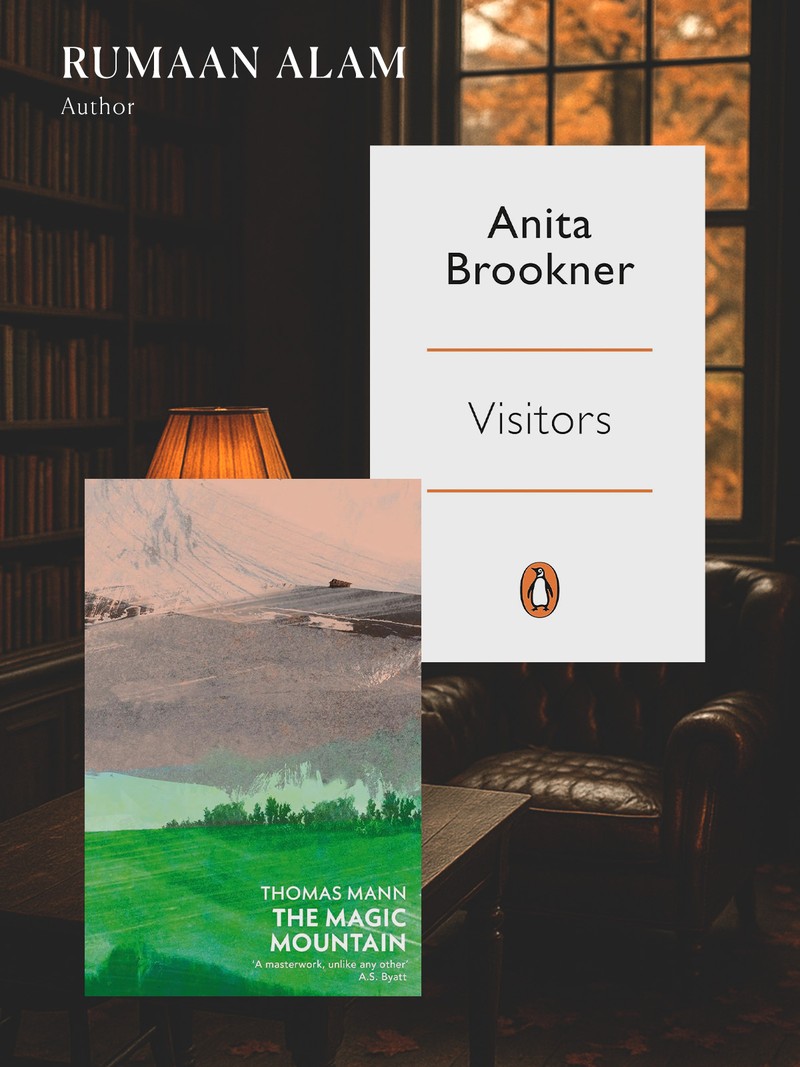
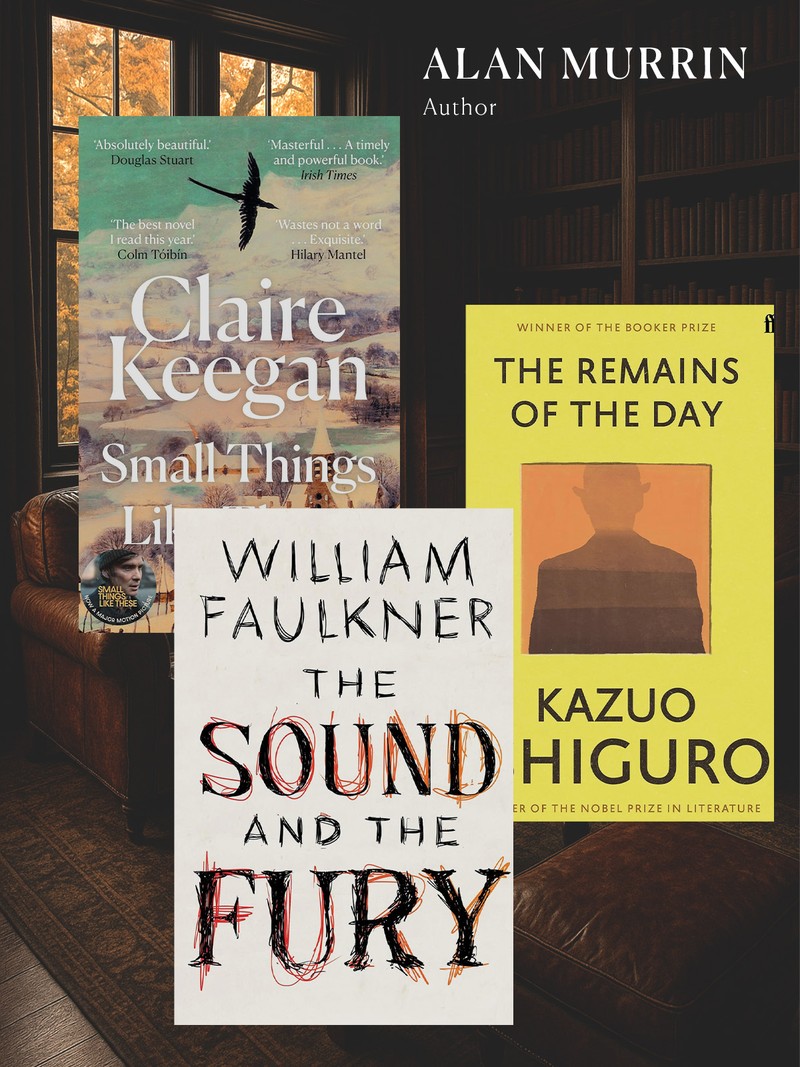
The Sound And The Fury | William Faulkner
Sex, death, family – this classic Southern gothic combines all of these in a heady mix that leaves you reeling. There is poetry in every line and the saga of the Compson family will live on in the memory long after reading.
The Remains Of The Day | Kazuo Ishiguro
A butler from a stately home drives through the English countryside considering the role of honour and duty in the life well lived. He was in proximity to historical events in the lead up to the second world war, but did he have his own part to play in how those events unfolded? An almost perfect novel.
Small Things Like These | Claire Keegan
This slim novel has an emotional and philosophical heft that far outweighs its hundred or so pages. In small town Ireland in the lead up to Christmas, Bill Furlong battles with his conscience while the community around him turns a blind eye to the hypocrisy of the Catholic Church and its treatment of young girls in the Magdalene laundries. A modern classic.
Hiroshima | John Hersey
One of the most harrowing books I've ever read, Hiroshima documents the accounts of the first people in the world to experience the true power of an atomic bomb and the effects on the human body. It’s a heartbreaking book and because of that, it's one of the most persuasive disarmament texts; this simply should not happen again. Also, when it was published in 1946, it was instrumental in informing the West on the extent of the horror from the blast, including the fallout and changing public opinion.
Putin’s People: How The KGB Took Back Russia And Then Took On The West | Catherine Belton
To understand Putin’s stance, background and intentions, this is the book to read. In fact, it’s key to understanding contemporary geopolitical relations generally. Meticulously researched, it’s peppered with fiery prose and with some terrifying revelations.
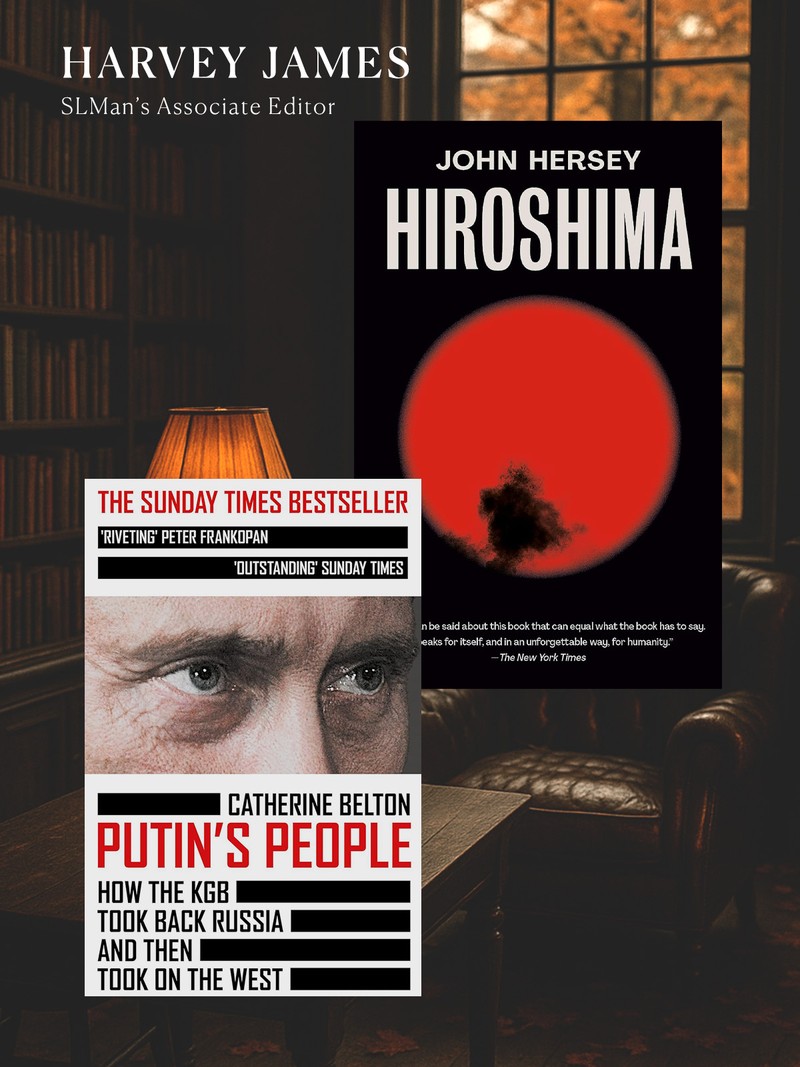
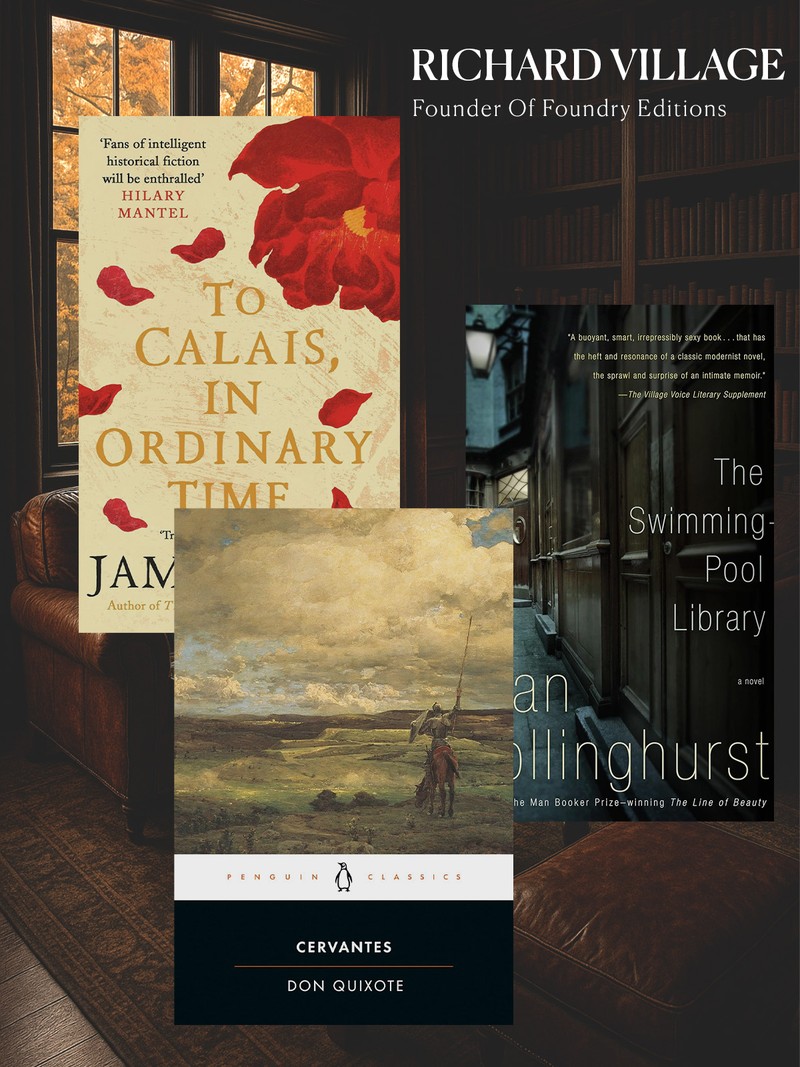
Don Quixote | Miguel de Cervantes
Unforgettable characters, the whole gamut of human emotions and the clearest demonstration ever of fiction’s unique power to tell the truth whilst completely making things up.
To Calais, In Ordinary Time | James Meek
This book rips up the rule book about what a historical novel should be. Its constructed world has so much to say about today. As an exploration of where the English language has come from and an experiment in how inventive, expressive and beautiful language can be, it bowled me over.
The Swimming Pool Library | Alan Hollinghurst
An oft-heard criticism about Hollinghurst is how he writes as if “everyone is gay”. Yet imagine how incredible that felt for a then 18-year-old in 1988 at the height of the AIDS crisis and Section 28. This book is super-sexy, a ripping yarn and paints an amazing picture of a rebellious London that I miss.
The Glass Bead Game | Herman Hesse
A curious book set in the future in an ascetic cloistered society where all human culture is distilled into a single game, recounted as a scholarly biography of 'Joseph Knecht' complete with his alleged collected writings. I loved being in the presence of this character and this rarified world he inhabits with evocations of philosophy, art and the most beautiful descriptions of music I've ever encountered.
The Grapes Of Wrath | John Steinbeck
The intimate and personal journey of the Joad family seeking prosperity by heading west is interspersed with chapters exploring the wider mass exodus of the depression era against a backdrop of indifferent nature. Steinbeck's understated language alternates between terse poignant dialogue and moments of real poetry, touching on Christian religious archetypes and social injustice in a way that I find very powerful.
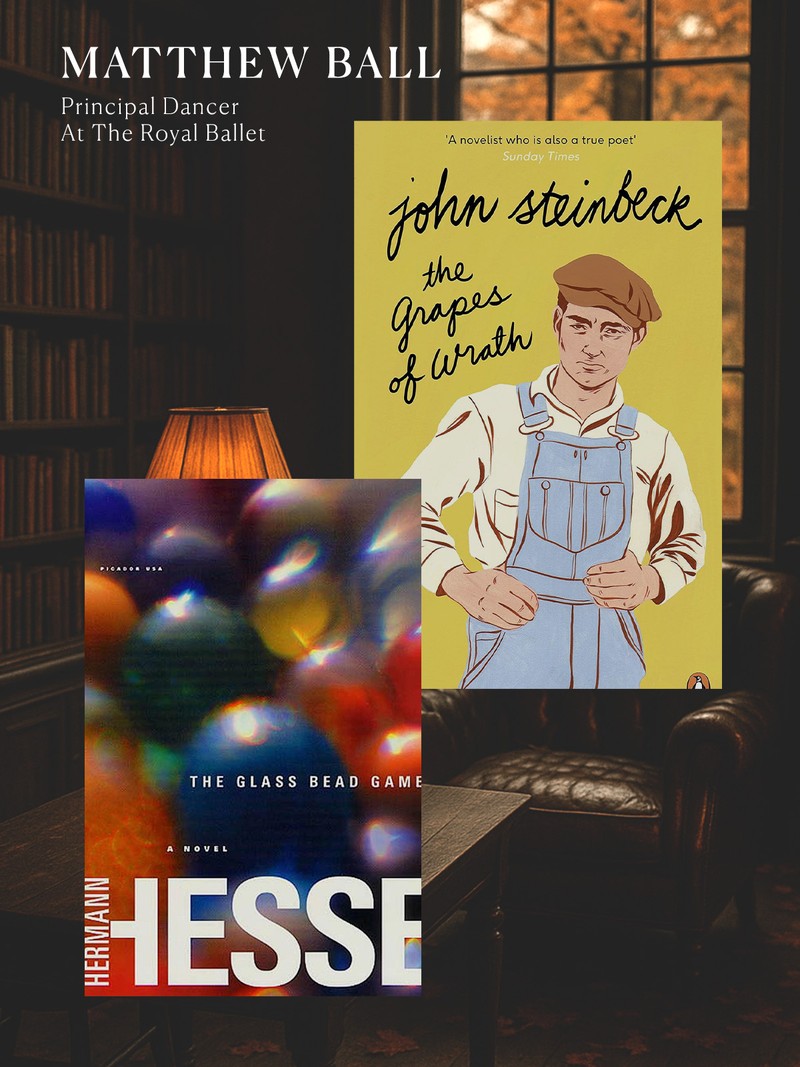
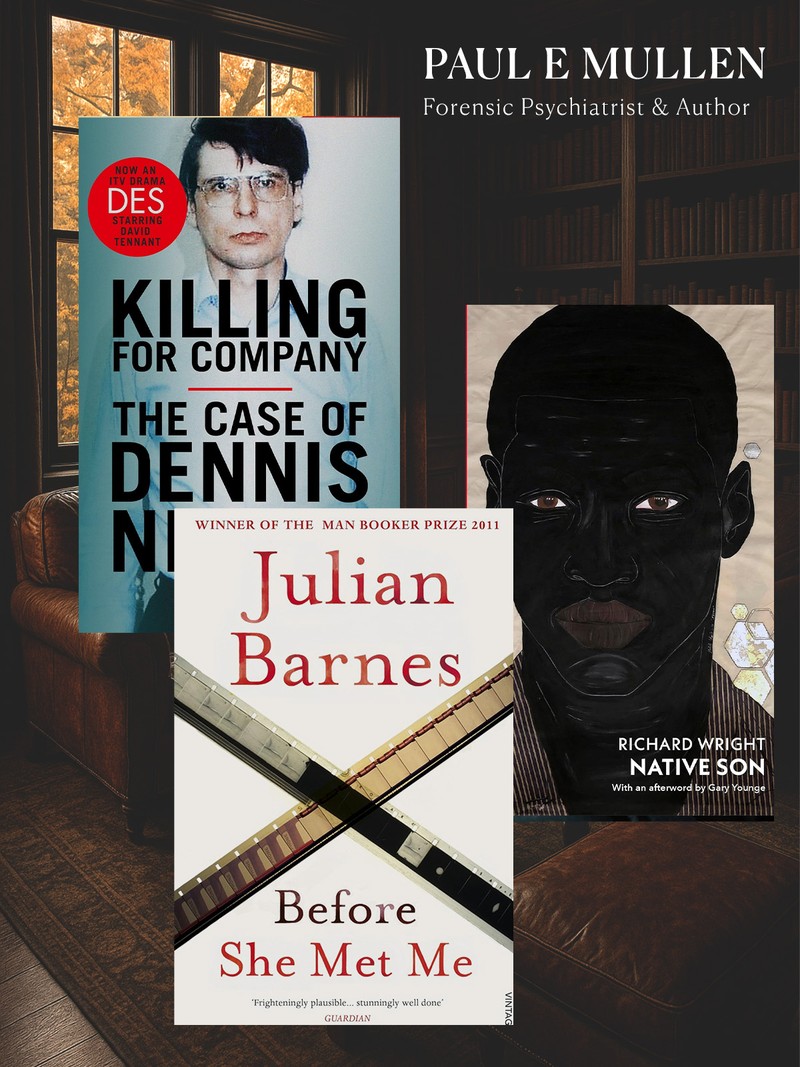
Before She Met Me | Julian Barnes
I have chosen three books which explore the mind of a murderer. My first selection takes us into the world of a man increasingly caught up in jealousy of his younger, more attractive, film actress wife. The author recounts the main character’s gradual progress from beginning to wonder about his wife’s previous lovers to an obsessive search for details of these actual or supposed lovers. Initially he is focused on the past but eventually he turns to the present. This book also has one of my favourite opening passages…
Killing For Company | Brian Masters
True crime books are turned out in their hundreds, the best of which offer plausible accounts of the events and the killers’ states of mind with the worst offering gross distortions usually demonising the killer without offering any insights into them as a person. Brian Masters provides an outstanding account in this book of Nielsen: a necrophiliac serial killer. Nielsen’s acts were monstrous but Masters manages to convey something of the tortured mind of the killer with understanding.
Native Son | Richard Wright
This is a book which has remained with me over the years. The novel traces the history of a young black man who kills a white woman in 1930s America. Wright takes us into the world and the mind of this boy to understand his actions, not to excuse them. The book was a sensation when first released and played an important role in establishing the reputation of black American literature. One of the authors I greatly admire, James Baldwin, was later to criticise many aspects of the book for creating yet another one-dimensional version of the black man for white America.
Running Amok: Inside The Mind Of A Lone Mass Killer by Paul E. Mullen is available to buy now.
End Of The Affair | Graham Greene
I’m conscious of spoilers, so let’s just say that Greene’s depiction of God struck me as incredibly clever. This book reads like a thriller, with a plot twist that is memorable because it is metaphysical, yet all set amidst the banality of Clapham Common.
Flesh | David Szalay
You glide through the narrative of protagonist István’s life, who seems divorced from his own sense of agency except in moments of extremity, where his desires surprise even himself. The consequences of his emotional illiteracy makes every page a surprise – not even the protagonist knows what he will do next.
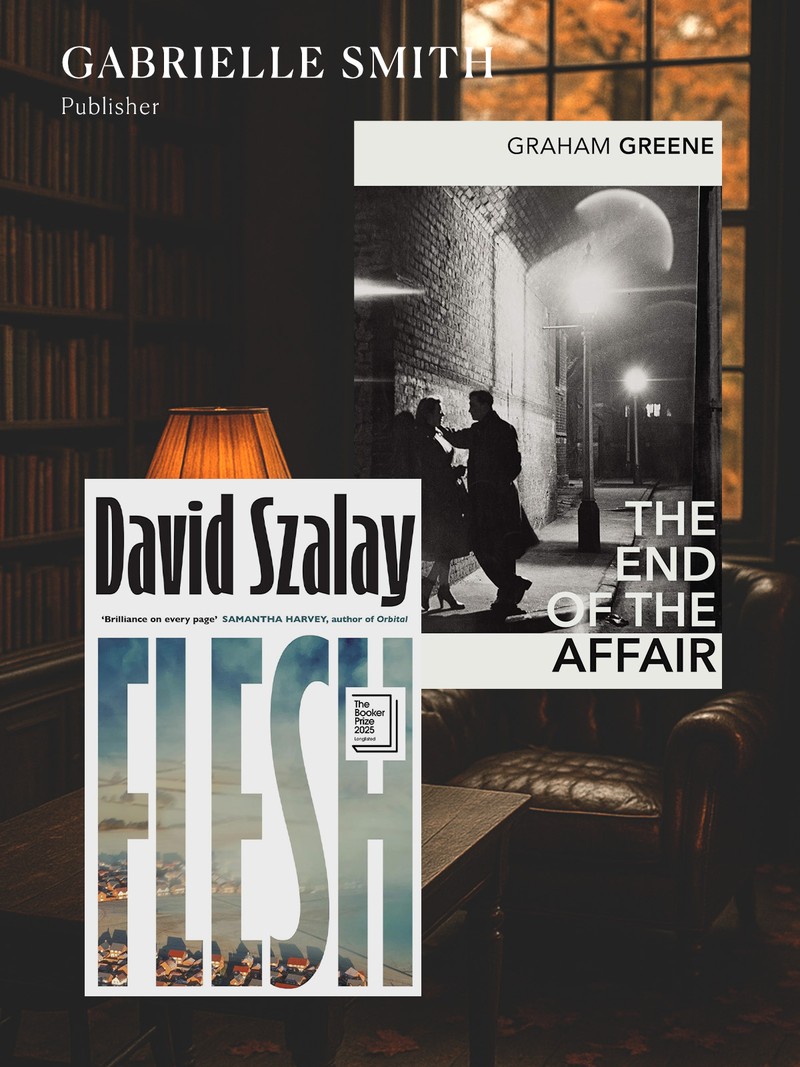
Image credits: AI Generated
All products on this page have been selected by our editorial team, however we may make commission on some products.
DISCLAIMER: We endeavour to always credit the correct original source of every image we use. If you think a credit may be incorrect, please contact us at [email protected].

